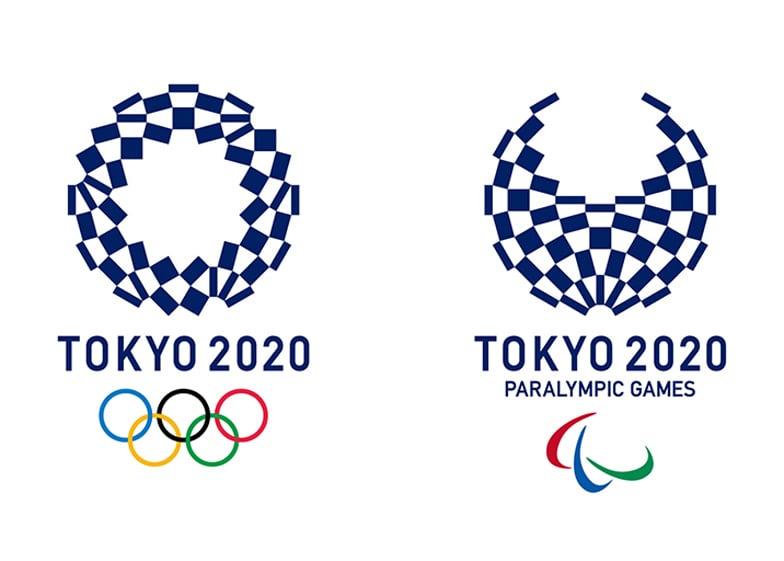A pair of chequerboard designs by Japanese artist Asao Tokolo have been unveiled as the new official logos for the Tokyo 2020 Olympics and Paralympic Games, after the original designs were ditched amid claims of plagiarism.
The pair of emblems comprise a variety of indigo rectangles arranged on a white background.
Variations between the two globe-shaped designs are intended to create distinct branding for the two sections of the games, which are to be held in various venues across the city including a new stadium designed by Kengo Kuma.
Tokolo's logos were chosen as the winners of an international competition, launched by the Tokyo 2020 Emblems Selection Committee in late 2015 to replace designs by Japanese designer Kenjiro Sano, which were scrapped following plagiarism claims.
The chequerboard pattern used by Tokolo, known as ichimatsu moyo, is intended to express a "refined elegance and sophistication that exemplifies Japan," according to the Tokyo 2020 Emblems Selection Committee.
"Composed of three varieties of rectangular shapes, the design represents different countries, cultures and ways of thinking. It incorporates the message of 'unity in diversity'," said a statement from the organisers.
"It also expresses that the Olympic and Paralympic Games seek to promote diversity as a platform to connect the world."
Tokolo saw off competition from three other shortlisted entrants in the anonymous competition, whose designs were unveiled earlier this month. The runners-up have now been named as Kozue Kuno, Takaaki Goto and Chie Fujii.
The original designs by Sano attracted international controversy for their perceived similarity to work by Belgian designer Olivier Debie.
Debie alleged Sano had used elements of a logo he created for the Théâtre de Liège in 2013, but the graphic designer recently abandoned his legal case against the International Olympic Committee due to escalating legal costs.
This is not the first design controversy for the Tokyo 2020 Olympics. Kengo Kuma was selected for the new Tokyo 2020 stadium after the late Zaha Hadid's plans for the same project were scrapped by Japanese prime minister Shinzo Abe.
Hadid accused Japanese authorities and architects of colluding over the Tokyo 2020 Olympic stadium project, claiming that the replacement design shares "remarkable similarities" to her own – an accusation Kuma refuted.

